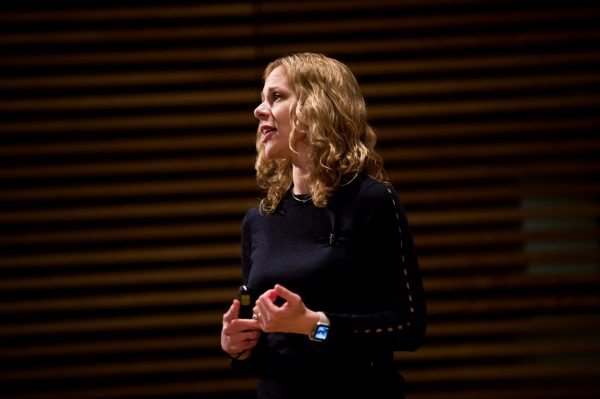
Emily Mower Provost, associate professor of electrical engineering and computer science. (Joseph Xu, Michigan Engineering)
Using machine learning to decode the unpredictable world of human emotion might seem unusual. But computer science and engineering associate professor Emily Mower Provost has discovered a rich trove of data waiting to be analyzed in the ambiguity of human expression.
Mower Provost uses machine learning to help measure emotion, mood, and other aspects of human behavior; for example, she has developed a smartphone app that analyzes the speech of patients with bipolar disorder to track their mood, with the ultimate goal of helping them more effectively manage their health.
“As a machine learning researcher, we generally expect data examples to be accompanied by clear and unambiguous labels. But in emotion modeling, the whole idea of ‘unambiguity’ is invalid,” says Mower Provost. “Emotion modeling research asks how we can quantify the ambiguity in human expression and use that information to do something useful.”
Read the interview with Mower Provost in Michigan Engineering.
